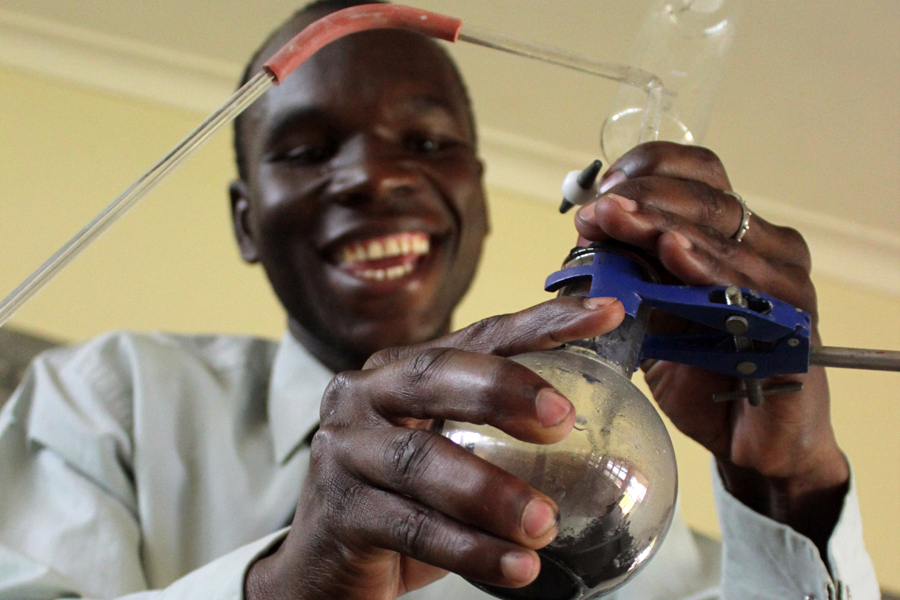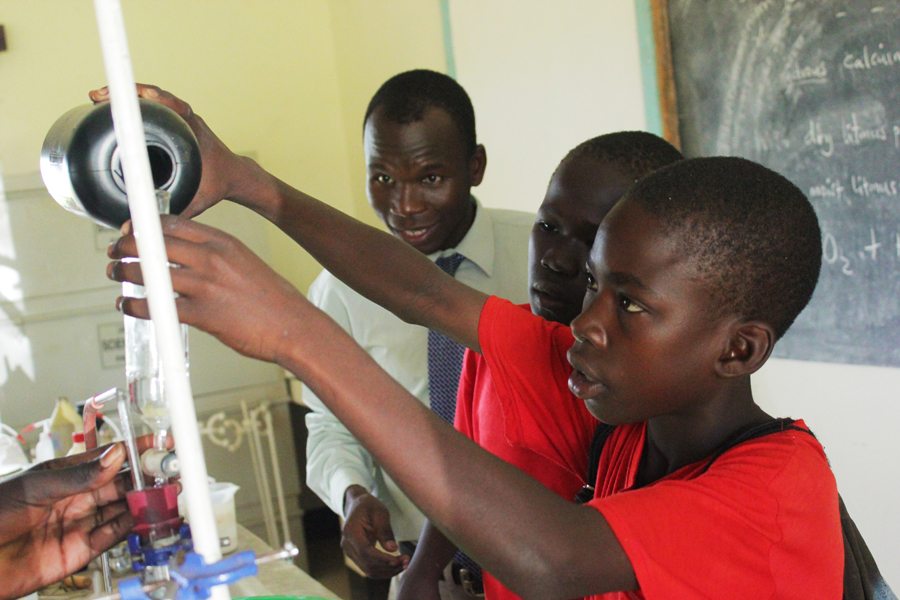Opiyo Samuel teaches chemistry, mathematics and computer studies at Anaka Secondary School. Teaching since 2005, he enjoys the respect he has earned from the community, and the difference he can make in the lives of students.
In the lab, Samuel patiently talks his students through an experiment, showing them how to use all the equipment and how much of each solution to pour into the beakers. Then he steps back and lets them try for themselves.
“I like the knowledge we give to students. I like seeing them progress.”
While he deals with very large class sizes for the earlier years of secondary school, by the final two years he has noticed a drop in the number of students. He would like to see this changed, and see students make it through all of secondary school without having to drop out for financial or other reasons.
The Reciprocal Teacher Exchange will be Samuel’s first time abroad. “It’s an adventure! I expect to learn new things.”
Along with more insight into a different education system, Samuel hopes to build his teaching skills, especially in computer studies.
Invisible Children’s Reciprocal Teacher Exchange, now in its fourth year, provides Ugandan teachers with the opportunity to spend four weeks in the United States partner teaching in a North American classroom.
The Reciprocal Teacher Exchange has proven to make a remarkably formative impact on all of the Ugandan and North American students, teachers, principals and head teachers who take part in the program.
Join us in raising support for Ugandan teachers and Head Teachers to embark on a dynamic personal and professional journey to collaborate with teachers from the U.S.
[The Teacher Exchange is a program that allows Ugandan and international educators to form teaching partnerships while exposing their students to a world outside their borders. International educators team-teach in northern Uganda each summer for six weeks, and, in a reciprocal exchange, Ugandan educators visit the schools of the international educators each winter. Learn more here.]


Think people should hear about this?